Have you heard of the potato trick? Discover how to make a grill non-stick using a kitchen leftover
I asked expert chefs how to make a grill non-stick. They gave me several methods, including a cheap trick with a potato
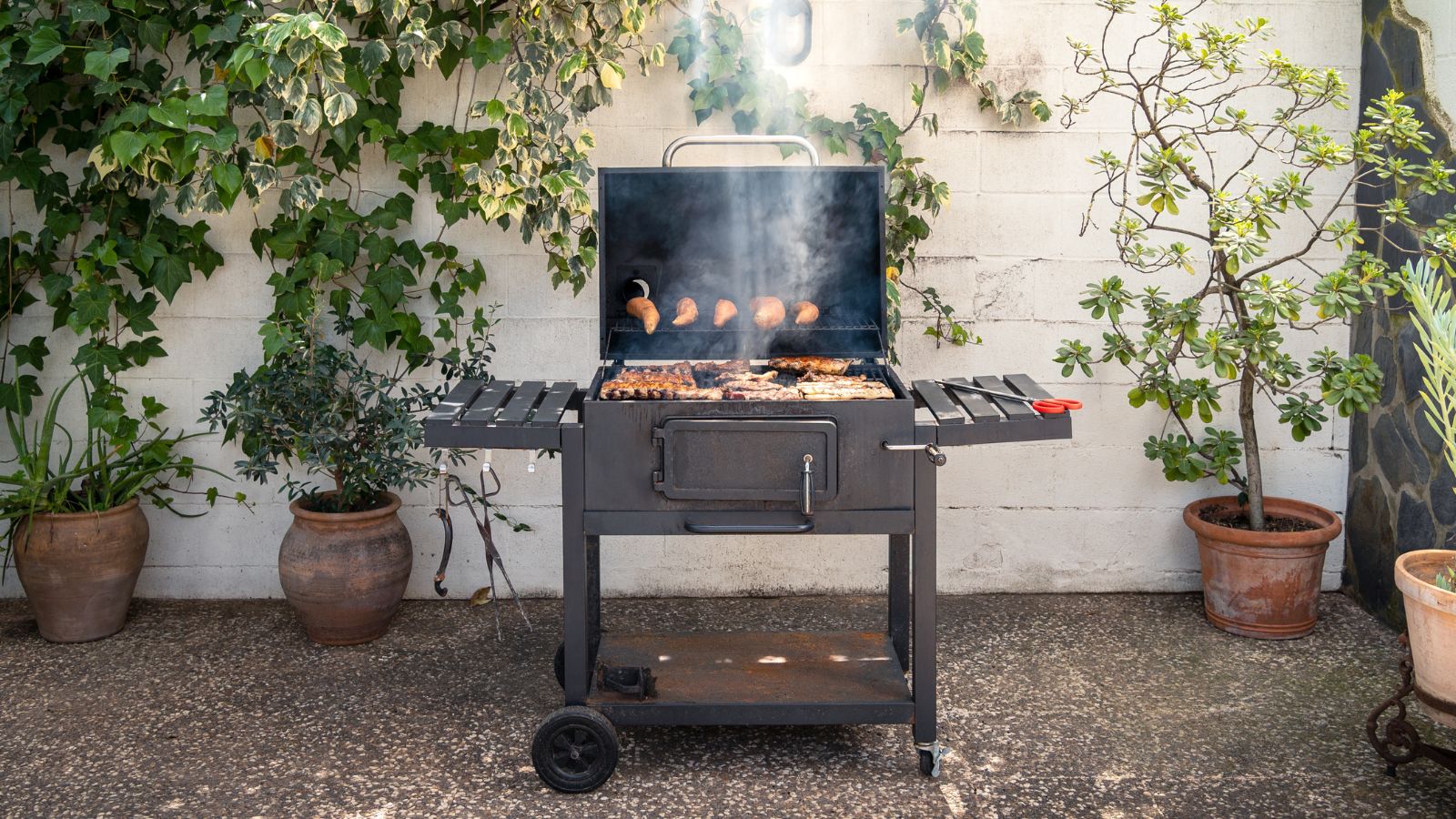

Your food is almost ready: it's been waiting in a family-secret marinade for the last 24 hours. You place it lovingly on the grill but in seconds that sticky seasoning has welded to the grill, pulling the skin off your food and making for burnt, bitter barbecue.
I make a living testing the best grills and even I have days when it feels like my food is fused to the grill. Thankfully, there are some simple solutions.
I spoke to chefs and grilling experts for their advice on how to make grill grates nonstick and take all the stress out of your next cookout.
1. Clean your grill
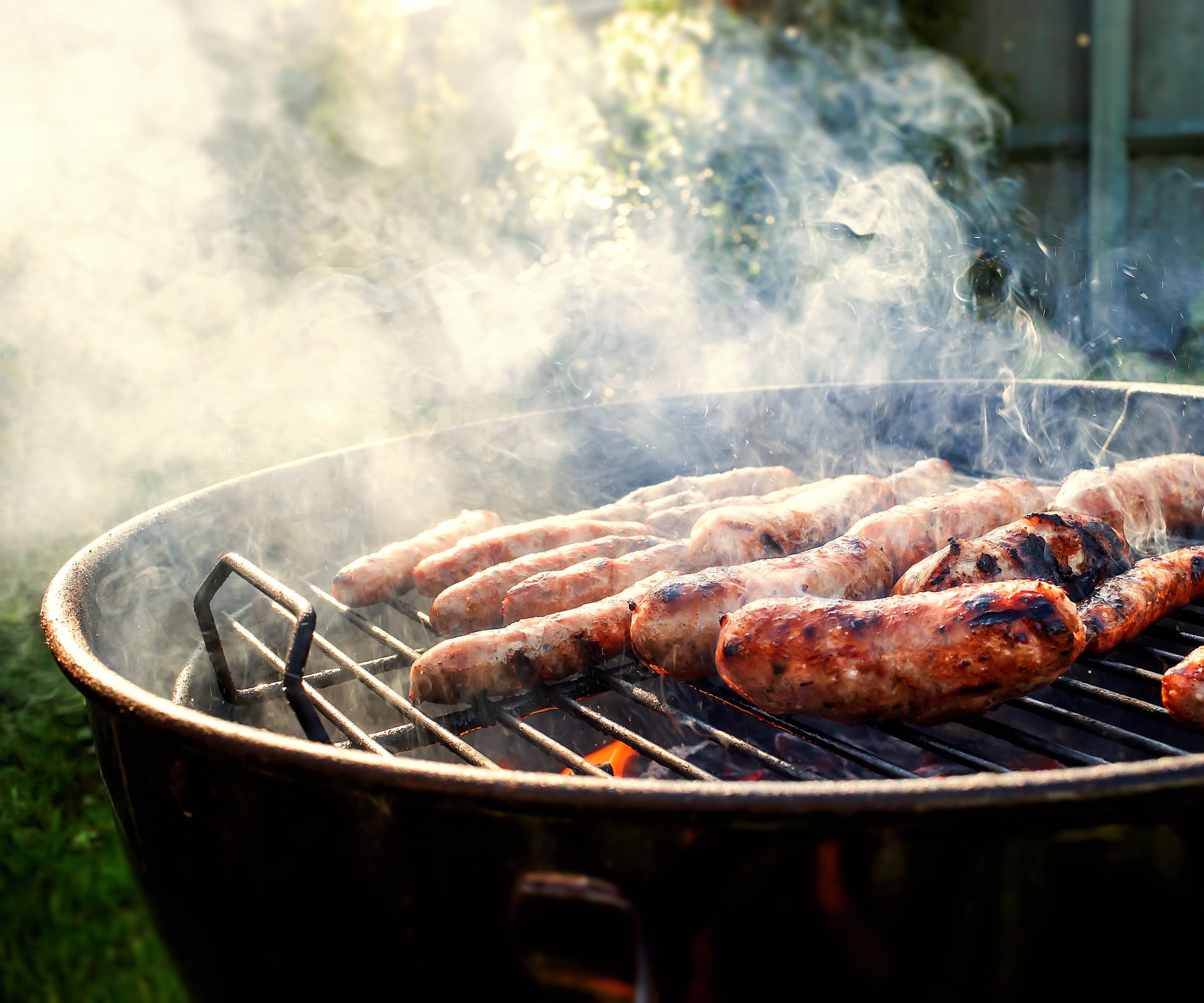
It's perhaps a little obvious, but every chef I spoke to for this article stressed the importance of cleanliness in maintaining a non-stick grill. Chef Serge Krikorian told me that 'The key to a nonstick grill starts with cleanliness. Before each use, make sure your grill grates are thoroughly cleaned to remove any stuck-on food or residue.'
This is because baked-on grease is sticky, especially if you use sticky, sugary sauces to flavor your meat. What's more, it forms a barrier between the heat source and the metal grates. This means your food can't achieve a proper sear, which means it will fuse with the grease and cooking surface and stick.
Cleaning is easy, though I strongly recommend you avoid wire grill brushes, as these have been linked to several injuries. While you can use a stiff nylon brush, like this Charbroil grill brush at Amazon, there's a cheaper solution. Most chefs I know swear by using a ball of aluminum foil to clean their grills. It's cheap, abrasive, molds to the gaps in the grate, and there's no risk of injury or accident.

Chef Serge Krikorian and his wife, Mary Krikorian, started their catering business in 2002 and have been in the family restaurant business since 1994. Having catered thousands of events over the years as Dinner’s Ready, they recently launched Vibrant Occasions Catering.
2. Oil the grates
Once your grill is clean, you can season the grates with oil. Food blogger Grace Vallo says that you should 'Coat the grates with a high smoke point oil, such as canola or vegetable oil, using a paper towel or brush before preheating the grill. This creates a nonstick layer and helps prevent food from sticking.'
It's important to use a high smoke-point oil because these oils result in a better taste. High-smoke point oils can reach higher temperatures without smoking, which will save your food from a burnt, bitter taste.
There are lots of high smoke point oils out there. As well as canola or vegetable oil, avocado, soybean, and peanut oil are good options. However, if you use peanut or soybean oil, make sure your guests aren't allergic.
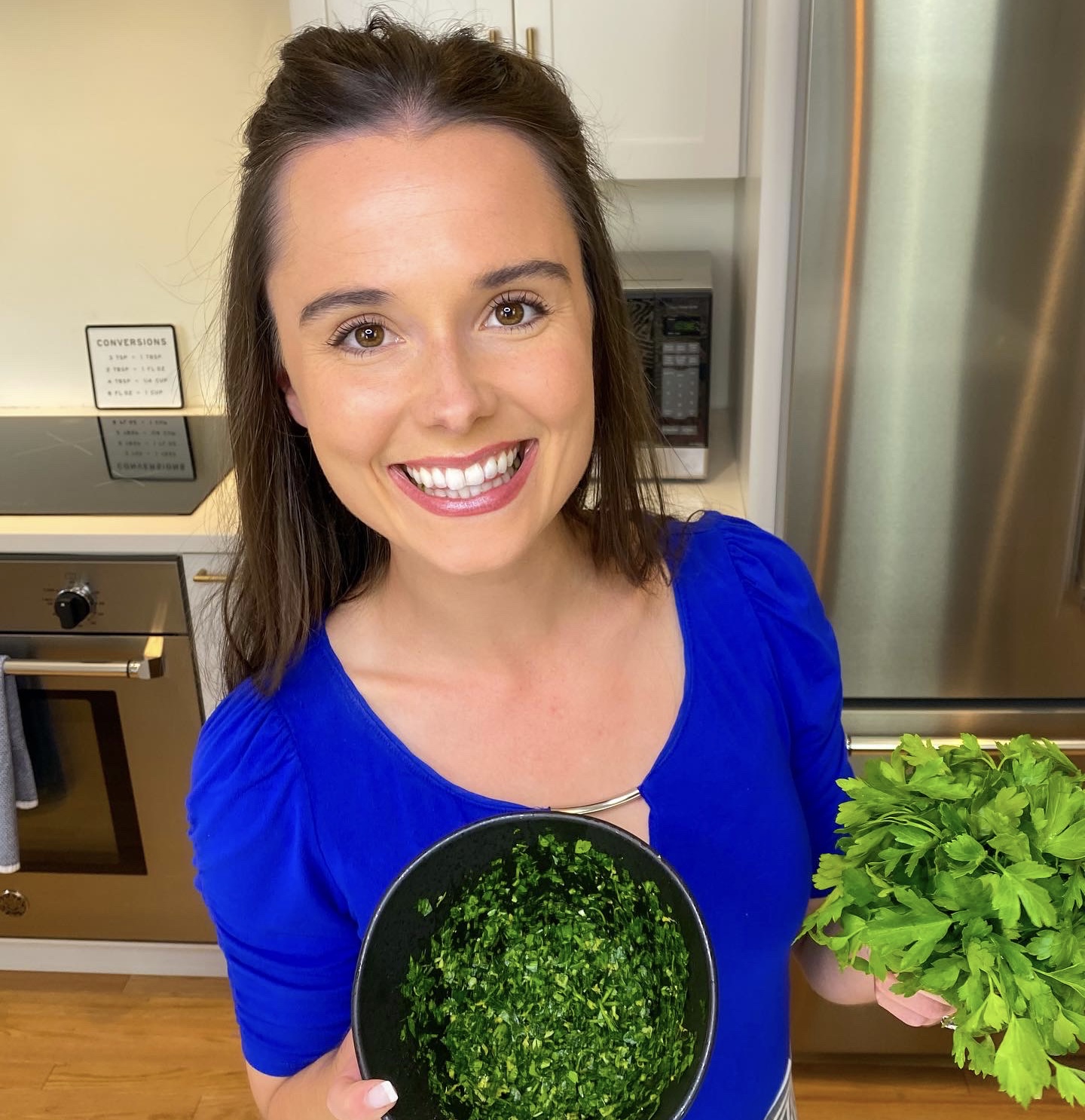
Grace Vallo is a New England-based self-taught chef, food blogger, and recipe creator. She started her food blog, Tastefully Grace, as a way of documenting her and her family's recipes.
3. The potato trick

However, while these high-smoke-point oils work great, they can be expensive, especially avocado oil. If you want to save a little money, all the chefs I spoke to gave me a neat little trick with a potato.
All you have to do is 'Preheat your grill to medium-high, then cut a raw potato (or an onion would also work) in half,' says Chef Serge Krikorian. 'Rub the cut side over the grill grates. The starch from the potato and the natural oils and juices from the onion help create a nonstick coating on the grates.'
4. Buy nonstick grill grates
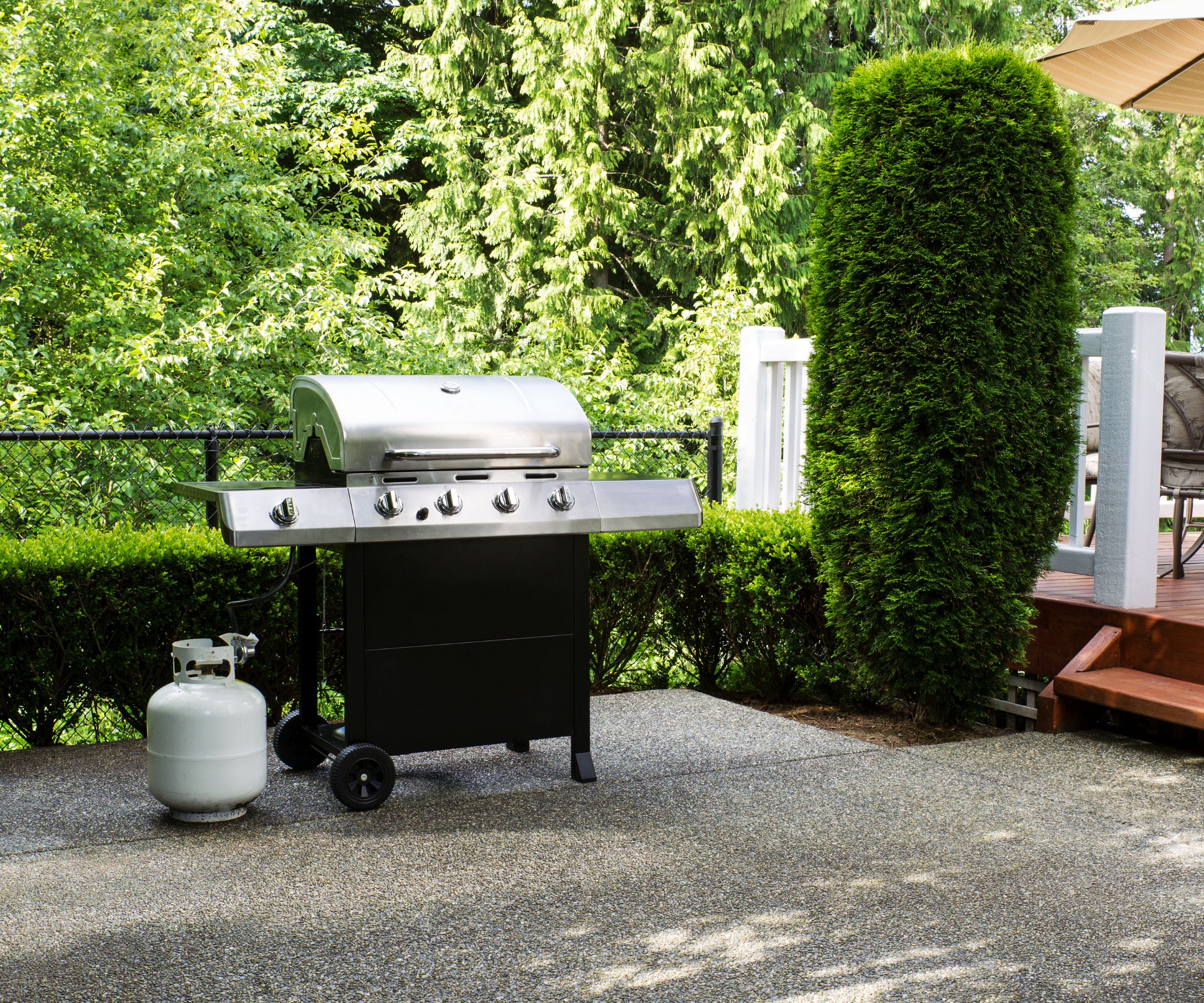
If this still sounds like too much work, you can buy nonstick grill grates. Chef Krikorian says that 'Many grill manufacturers offer models with nonstick cooking surfaces. These grates often have a ceramic or PTFE-based (Teflon) coating, making them easier to clean and less likely to stick.' You can find nonstick grill grates like these on Amazon for relatively cheap.
However, before you buy them, there are a couple of drawbacks with these grates. The first is that they aren't universal. Grace says it's crucial to 'Make sure they fit your grill model before purchasing.'
More importantly, there are some health concerns with nonstick surfaces. When we investigated if air fryers are toxic, we found that nonstick surfaces contain PFTEs, which have been linked to cancer. It's unlikely, but if the grill is scratched or broken and these find their way into your food, you may be putting yourself at risk.
5. Be patient
A final tip from Chef Krikorian is to be patient. He told me that sometimes food sticks because people are impatient to eat and flip the food before the meat has seared.
Instead, Chef Krikorian says to 'avoid moving the food too soon - let it naturally release from the grates before trying to flip or move it. This helps prevent sticking and keeps your food intact.'
Grill FAQ
Can you use an onion to clean a grill?
Yes, you can use an onion to clean a grill. The acid breaks down some of the grease, but there are more effective methods.
For more help with grills, take a look at my guide to which is best between charcoal and gas grills, and my advice on when it's antisocial to grill.
Sign up to the Homes & Gardens newsletter
Design expertise in your inbox – from inspiring decorating ideas and beautiful celebrity homes to practical gardening advice and shopping round-ups.

As a gardens and lifestyle contributor, Alex makes sure readers find the right information to help them make the best purchase. Alex got his start in reviewing at the iconic Good Housekeeping Institute, testing a wide range of household products and appliances. He then moved to BBC Gardeners’ World Magazine, assessing gardening tools, machinery, and wildlife products.
-
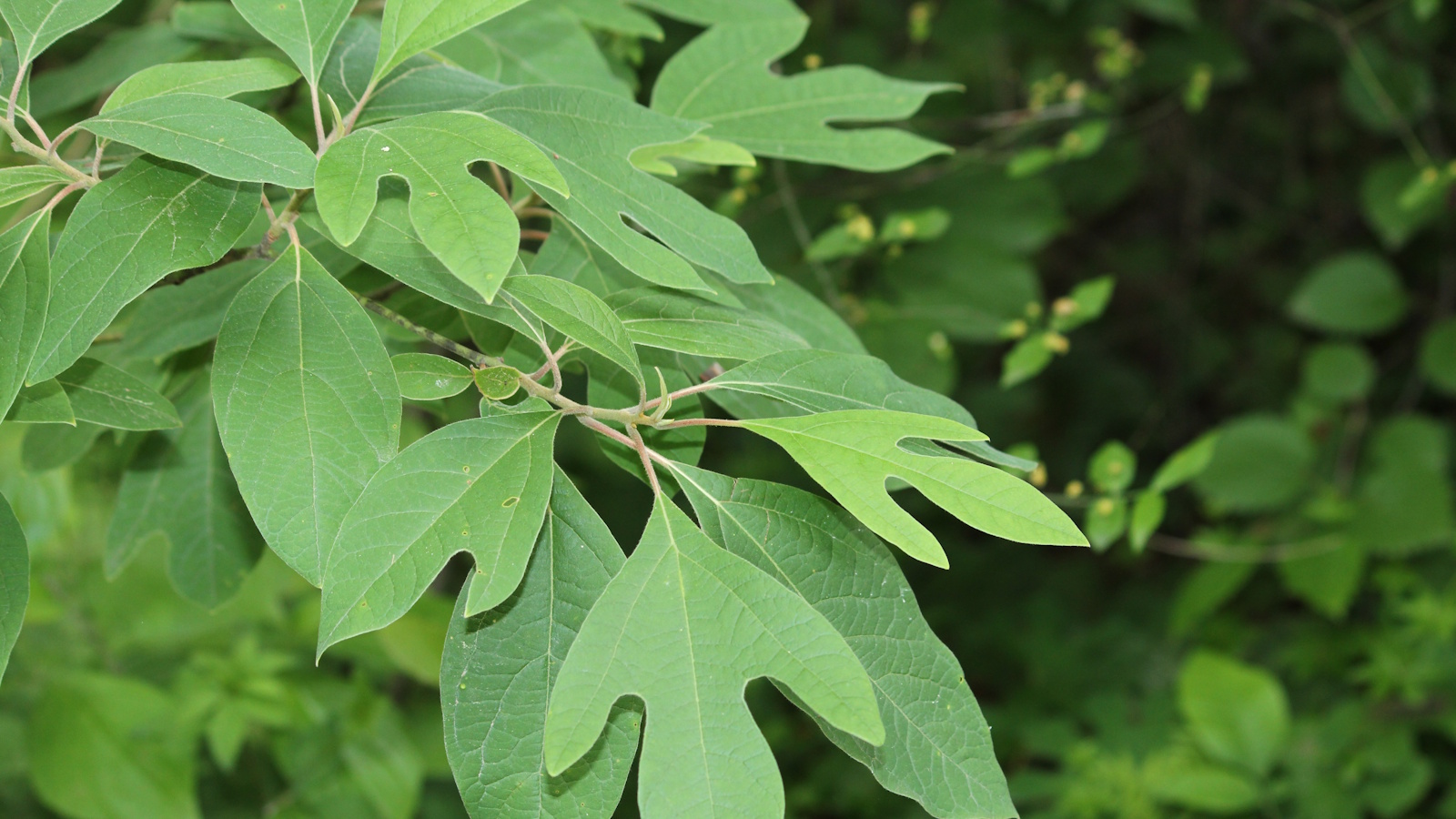 How to grow sassafras – for a low-maintenance native tree that can even be planted in shady yards
How to grow sassafras – for a low-maintenance native tree that can even be planted in shady yardsFor an easy-to-grow North American tree, you will not find much better than sassafras
By Thomas Rutter
-
 'Big results before you know it' – Experts urge you to use the ‘Take Away 10’ method for simple decluttering with zero decision fatigue
'Big results before you know it' – Experts urge you to use the ‘Take Away 10’ method for simple decluttering with zero decision fatigueIt can cut hundreds of items from your home in just a few weeks
By Ottilie Blackhall